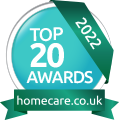
Jane Caress Ltd
ACCESS TO
INDEPENDENCE
Contact Jane Caress now
Email jane@janecaress.co.uk or call us on 01677 460051 or 07539 600709
You may be eligible for any of the following funding support options from the Government or NHS:
Attendance Allowance
Most state benefits are means-tested, however, Attendance Allowance is a non-means tested, tax-free state benefit, payable to all individuals over the age of 65 who have needed care (defined as help with essential daily tasks, such as washing and dressing) for longer than six consecutive months, regardless of whether or not they are in a care home.
Attendance Allowance is available at two rates: a lower rate, for those who need help during the day or the night and a higher rate, for those needing care during both the day and night.
The current weekly figures are £72.65 lower rate and £108.55 for the higher rate. Claim forms can be obtained from larger Post Offices, Citizens’ Advice Bureau, Age Concern Shops, the Benefits Agency themselves or downloaded directly from direct.gov.uk. Individuals needing care under the age of 65 will still qualify for an allowance, but this is paid in the form of Disability Living Allowance (full details can be supplied on request). During the coming year this benefit is changing to become the Personal Independence Payment (PIP).
NHS Continuing Healthcare
NHS continuing healthcare is a free package of care for people who have significant ongoing healthcare needs. It is arranged and funded by the NHS. You can receive NHS continuing healthcare in any setting outside hospital, including in your own home or in a care home. If you receive care in your own home, the NHS will cover the cost of the support you need from health professionals and the cost of personal care which can include help with washing and getting dressed.
Learn more about NHS Continuing Healthcare
Local Authority Funding
As it stands today, your local authority will only help pay for your care needs if you are deemed to have insufficient assets to meet these care costs themselves. A “Financial Assessment” is used to gauge this which looks at both your capital (property, savings, investments) as well as your income (usually pensions and benefits). As a rule of thumb, if you own your own home, and a spouse isn’t still living in it, you are likely to be deemed a “Self-Funder” and will receive no help from your local authority.
When determining an individual’s assets, if his / her capital is less than £14,250 then the local authority will pay for all care costs; if his / her capital is between £14,250 and £23,250 then the local authority will contribute towards care costs; if his / her capital is above £23,250 then the individual will be deemed a Self-Funder and the local authority will make no contribution towards care costs.
Note that if an individual’s capital is less than £23,250, but his / her income is more than the cost of their care plus the weekly expenses Personal Allowance of £22.60, the local authority will make no contribution towards care costs.
For most people it is the value of their home that pushes them above these stringent thresholds. There are however certain circumstances in which an individual’s home is disregarded in the Financial Assessment:
- If a spouse, partner or another relative aged 60 years or over is living there
- If the individual’s care needs are classified as “temporary”
- If the value of any other assets, excluding the home, are worth less than £23,250, then the local authority will pay care costs for an initial period of 12 weeks. However, should the cost of care purchased be greater than the equivalent local authority rate then the individual will be asked to pay the difference during this period
- In the event that local authority funding is received, an individual may top-up these payments in order to meet the full cost of the chosen care provider if this is greater.
Source: Age UK, Symponia (www.symponia.co.uk).
